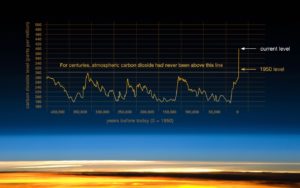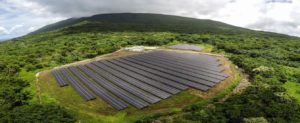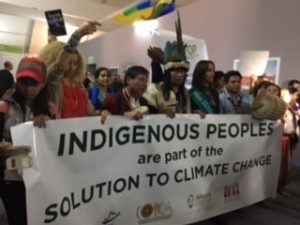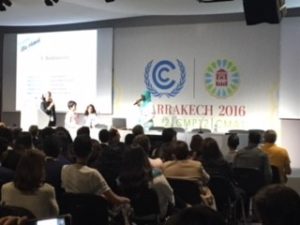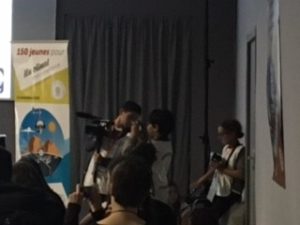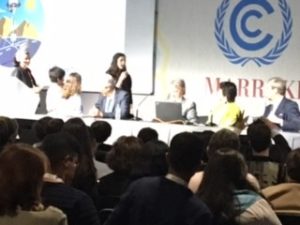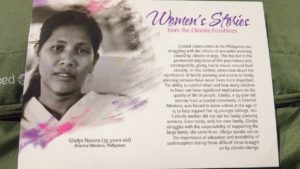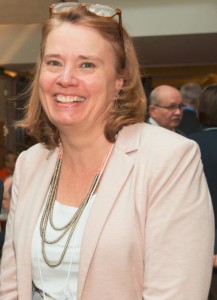from the ELCA Advocacy office in Washington, D.C. – the Rev. Amy E. Reumann, director
FOREIGN ASSISTANCE | YEMEN RESOLUTION | JUST TRANSITION | GENDER JUSTICE | ACTION CENTER NOTE | DATE NOTE
 FOREIGN ASSISTANCE FUNDING OUTCOMES: Congress has passed a budget compromise that includes spending levels for international affairs programs. These programs address food insecurity, poverty and other top international ELCA Advocacy priorities. Some programs focusing on poverty reduction saw a slight increase, e.g. global health programs and international disaster assistance.
FOREIGN ASSISTANCE FUNDING OUTCOMES: Congress has passed a budget compromise that includes spending levels for international affairs programs. These programs address food insecurity, poverty and other top international ELCA Advocacy priorities. Some programs focusing on poverty reduction saw a slight increase, e.g. global health programs and international disaster assistance.
 YEMEN RESOLUTION IN CONGRESS: Last month the House passed a joint resolution calling for an end to U.S. military assistance to the Saudi-led coalition fighting in Yemen. The legislation now heads to the Senate, where 51 votes are required for passage. ELCA Advocacy staff are monitoring the progress of the resolution, which could affect peace outcomes in the region.
YEMEN RESOLUTION IN CONGRESS: Last month the House passed a joint resolution calling for an end to U.S. military assistance to the Saudi-led coalition fighting in Yemen. The legislation now heads to the Senate, where 51 votes are required for passage. ELCA Advocacy staff are monitoring the progress of the resolution, which could affect peace outcomes in the region.
 JUST TRANSITION AND CLIMATE: ELCA Advocacy and the Franciscan Action Network are working with members of the Edison Electric Institute, which represents U.S. investor-owned electric utilities, to find areas of commonality in addressing the impact of greenhouse gases in the atmosphere. Together, the partnership is exploring two aspects of the problem—energy efficiency and just transition—and is trying to establish common definitions and principles for just transition. Faith-based organizations can complement the just transition process by addressing the social impact on communities where coal-fired plants have been closed in a manner that utility companies may not be equipped to help, as communities make the transition to a carbon-neutral resilient society where no one is left behind.
JUST TRANSITION AND CLIMATE: ELCA Advocacy and the Franciscan Action Network are working with members of the Edison Electric Institute, which represents U.S. investor-owned electric utilities, to find areas of commonality in addressing the impact of greenhouse gases in the atmosphere. Together, the partnership is exploring two aspects of the problem—energy efficiency and just transition—and is trying to establish common definitions and principles for just transition. Faith-based organizations can complement the just transition process by addressing the social impact on communities where coal-fired plants have been closed in a manner that utility companies may not be equipped to help, as communities make the transition to a carbon-neutral resilient society where no one is left behind.
 INTERNATIONAL GENDER JUSTICE: At the State of the Union Address, President Donald Trump announced a new initiative called Women’s Global Development and Prosperity, with the goal of advancing women’s full and free participation in the global economy. The initiative aims at building on programs that are already in existence. The initiative sets up $50 million fund for USAID to invest in new programs that will help women start their own businesses, overcome barriers to doing business, and find jobs. With the goal of reaching 50 million women by 2025; and requires interagency coordination among different agencies.
INTERNATIONAL GENDER JUSTICE: At the State of the Union Address, President Donald Trump announced a new initiative called Women’s Global Development and Prosperity, with the goal of advancing women’s full and free participation in the global economy. The initiative aims at building on programs that are already in existence. The initiative sets up $50 million fund for USAID to invest in new programs that will help women start their own businesses, overcome barriers to doing business, and find jobs. With the goal of reaching 50 million women by 2025; and requires interagency coordination among different agencies.
 FROM THE ACTION CENTER – HUNGER DOESN’T WATCH A CLOCK: The U.S. Department of Agriculture (USDA) has proposed a rule that would put time limits on food benefits for unemployed and underemployed people who can’t document a designated number of weekly work hours or job training. People who cannot meet the documentation requirement would lose SNAP food assistance eligibility after three months, regardless of how hard they are trying to find work or acquire job skills. This would lead to increasing hunger in our communities. Shortly after the rule was posted last month, ELCA Advocacy responded with an Action Alert opposing it. Advocates have until April 2 to submit comments to the USDA through the Action Center at http://ELCA.org/advocacy/actioncenter .
FROM THE ACTION CENTER – HUNGER DOESN’T WATCH A CLOCK: The U.S. Department of Agriculture (USDA) has proposed a rule that would put time limits on food benefits for unemployed and underemployed people who can’t document a designated number of weekly work hours or job training. People who cannot meet the documentation requirement would lose SNAP food assistance eligibility after three months, regardless of how hard they are trying to find work or acquire job skills. This would lead to increasing hunger in our communities. Shortly after the rule was posted last month, ELCA Advocacy responded with an Action Alert opposing it. Advocates have until April 2 to submit comments to the USDA through the Action Center at http://ELCA.org/advocacy/actioncenter .
 ON THE CALENDAR – ECUMENICAL ADVOCACY DAYS: The annual Ecumenical Advocacy Days conference, gathering hundreds of faith-based advocates from across the country, will be held April 5-8 in Washington, D.C. Early-bird registration for the conference ends Friday, March 9, so interested attendees should apply soon! This year’s conference focuses on the theme “Trouble the Waters,” drawn from John 5:1-9, and calls on God to bring healing to our nation and world. Advocate meetings with Congress will focus on a range of issues, from expanding voter protections to increasing meaningful public participation to realizing social justice in our communities. ELCA Advocacy will host a reception during the conference for Lutheran attendees visiting the city. Additional information for Lutheran attendees will be shared before the conference begins.
ON THE CALENDAR – ECUMENICAL ADVOCACY DAYS: The annual Ecumenical Advocacy Days conference, gathering hundreds of faith-based advocates from across the country, will be held April 5-8 in Washington, D.C. Early-bird registration for the conference ends Friday, March 9, so interested attendees should apply soon! This year’s conference focuses on the theme “Trouble the Waters,” drawn from John 5:1-9, and calls on God to bring healing to our nation and world. Advocate meetings with Congress will focus on a range of issues, from expanding voter protections to increasing meaningful public participation to realizing social justice in our communities. ELCA Advocacy will host a reception during the conference for Lutheran attendees visiting the city. Additional information for Lutheran attendees will be shared before the conference begins.
Receive monthly Advocacy Connections directly by becoming part of the ELCA Advocacy network – http://elca.org/advocacy/signup , and learn more from elca.org/advocacy .


